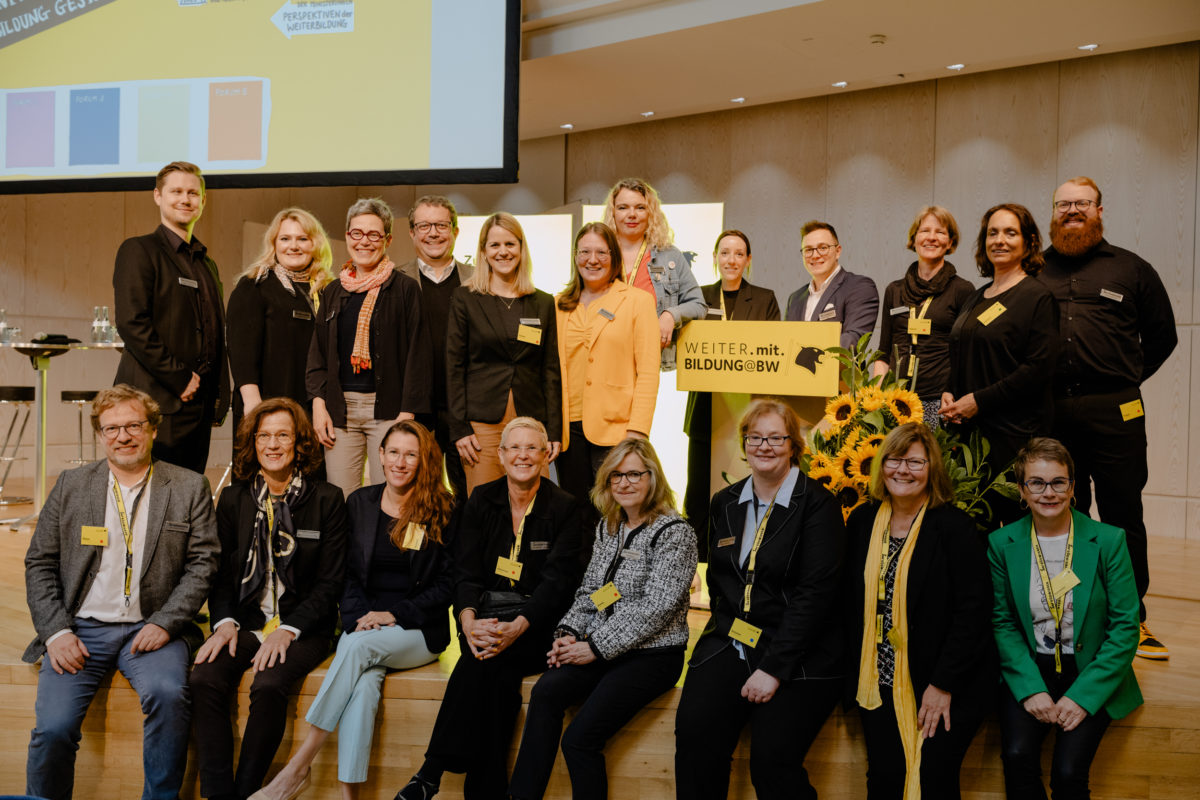by Christina Blake (networking coordinator for the University of Konstanz)
A new cross-departmental campaign for continuous education
Since mid-2021 Baden-Wuerttemberg’s Ministry of Science, Research and Art has been supporting the universities of Baden-Wuerttemberg (BW=The Laend)) within the scope of the cross-departmental campaign WEITER.mit.BILDUNG@BW (getting further by education) in order to make universities’ programmes for continuing academic education more visible and accessible to a variety of target groups. In view of the transformational processes in professional sectors as well as changing labour markets and job profiles, continuing academic education is regarded as one key cornerstone in order to stimulate and accelerate inevitable up- and reskilling processes within the employment sector.
Continuous academic education
The project Hochschulweiterbildung@BW (continuing academic education@BW) has started for this purpose and targets at proactively promoting the continuing education programmes of the universities towards the interested publics of economy and society. The Baden-Wuerttemberg section of the German Association for Continuing Academic Education (DGWF), founded in the year 2008 with pro-active contribution of the University of Constance, was a strong driver in the design and development of this project.
For more than two years, 26 networking coordinators, representing and working for Baden-Wuerttemberg’s 48 public universities, have joined forces in marketing efforts and building up networking structures, while being interconnected within a matrix structure, which consists of four regional clusters following the geographical division of Baden-Wuerttemberg and six specialized cluster: 1. Education and Society; 2. Digital Transformation; 3. Digital Management; 4. Sustainability; 5. Health and Social Sector; 6. Art and Culture. Innovative and interactive communication activities and exchange platforms bring together science with economy and society thus enabling the matching process of demand and supply in continuing education to move forward while leveraging synergies across a diverse university landscape. Furthermore, given its complementarity to research-based technology transfer, continuing academic education bears the potential for new impulses on structural levels. Nevertheless, different perspectives from the academic world and the business world have to be considered.
While the regional and specialised clusterings of this project have not taken into account any differences between the participating universities, neither when it comes to their individual cultures and education philosophies nor considering their individual approaches to the development of programmes for continuing education, the regional proximity combined with access to an entire university network engaged in essential research fields, can be regarded as a major advantage. Numerous milestones thus have already become visible.
Several cooperations between universities have successfully been implemented, which concern newly developed courses of studies as well as shared infrastructure, CRM and marketing activities. Joint efforts for needs assessment on career as well as subject trade fairs and the establishment of networking structures with HR people from industry associations as well as experts from research institutes have resulted in a steadily growing overview of skills needed and corresponding education demands. They will form the base for further matching activities as illustrated in the outlook. The comprehensive internet platform ‘suedwissen.de’ now offers well-structured information and access to the continuing academic education programmes of Baden-Wuerttemberg’s public universities. It was inaugurated on occasion of a Kick-off-event with all parties from the educational sector involved (www.thechaence.com). New event formats enabling ongoing personal exchange have come up, such as ‘trial days for courses and modules’, ‘open door days’, ‘after work cocktails’, and there is yet more to come.
Outlook
Drawing on the findings and insights from the communication and networking activities, a survey for needs assessment concerning continuous education in the medicine technology sector will be carried out by the cluster Health and Social Sector, led by the University of Konstanz and in close cooperation with the Innovation and Research Institute (IFC) Tuttlingen, a strong player in the medical sector in Baden-Wuerttemberg and part of the University of Furtwangen. Furthermore, an online event for knowledge transfer and continuous education is planned for April 2024, with the aim to initiate dialogue and promote reciprocal transfer between research and industry, while at the same time offering insight into already existing programmes.
.
Photocredit: © Illkay Karakurt










